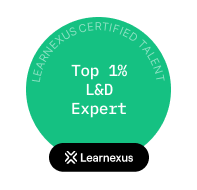Publications
Wills, C., & Xie, Y. (2016). Toward a comprehensive theoretical framework for designing digital badges. In D. Ifenthaler, N. Bellin-Mularski, & D.-K. Mah (Eds.), Foundation of Digital Badges and Micro-Credentials (pp. 261–272). Cham: Springer International Publishing. Retrieved from http://link.springer.com/10.1007/978-3-319-15425-1_14
Hsu, P.-S., Adulseranee, R., Newman, E., Underwood, J., Wills, C., & Dyke, M. V. (2016). Designing an online graph-oriented collaborative argumentation tool for middle school students: A faculty expert’s perspective. International Journal of Designs for Learning, 7(3), 34–41.
Rhode, J., Richter, S., Gowen, P., Miller, T., & Wills, C. (2017). Understanding Faculty Use of the Learning Management System. Online Learning, 21(3). Retrieved from https://olj.onlinelearningconsortium.org/index.php/olj/article/view/1217
Hsu, P.-S., Adulseranee, R., Newman, E., Underwood, J., Wills, C., & Dyke, M. V. (2016). Designing an online graph-oriented collaborative argumentation tool for middle school students: A faculty expert’s perspective. International Journal of Designs for Learning, 7(3), 34–41.
Rhode, J., Richter, S., Gowen, P., Miller, T., & Wills, C. (2017). Understanding Faculty Use of the Learning Management System. Online Learning, 21(3). Retrieved from https://olj.onlinelearningconsortium.org/index.php/olj/article/view/1217
Papers
Works from my professional career and doctoral experience
Achievement Scaffolding Using Digital Badge Skill Hierarchies
Research Proposal
Fall 2014 | ETT 742
Self-Regulated Learning Theory: A Foundation for Digital Badge Assessment Systems
A Review of the Literature
Spring 2014 | ETT 741
Dissertation Review
Dissertation Review
Fall 2013 | ETT 740
Achievement Scaffolding Using Digital Badge Skill Hierarchies
Research Proposal
Fall 2014 | ETT 742
Self-Regulated Learning Theory: A Foundation for Digital Badge Assessment Systems
A Review of the Literature
Spring 2014 | ETT 741
Dissertation Review
Dissertation Review
Fall 2013 | ETT 740
Presentations
Your browser does not support viewing this document. Click here to download the document.
Reference resource management (RRM) is an essential subject for researchers. It has to deal with how we deal with information storage and organization for review and integration into our works. Historically, this has largely been a manual process: keeping physical copies of works in physical locations, recording reference information by hand. This approach has also largely translated is a rather direct way into digital management - with electronic folders replacing paper ones and so on.
Reference resource management software like Zotero, which I highlight in this presentation, provides a new, much more tightly integrated approach to reference materials. It offers a single platform for collecting, formatting, organizing, annotating, and integrating within one system as opposed to many disparate services. With a single system and a well-defined workflow, researchers can more quickly and effectively generate new works. This presentation reviews the features of Zotero (which are largely shared with other RRM software) and highlights a standard workflow approach for inputting, processing, and exporting information in the software.
Reference resource management software like Zotero, which I highlight in this presentation, provides a new, much more tightly integrated approach to reference materials. It offers a single platform for collecting, formatting, organizing, annotating, and integrating within one system as opposed to many disparate services. With a single system and a well-defined workflow, researchers can more quickly and effectively generate new works. This presentation reviews the features of Zotero (which are largely shared with other RRM software) and highlights a standard workflow approach for inputting, processing, and exporting information in the software.
